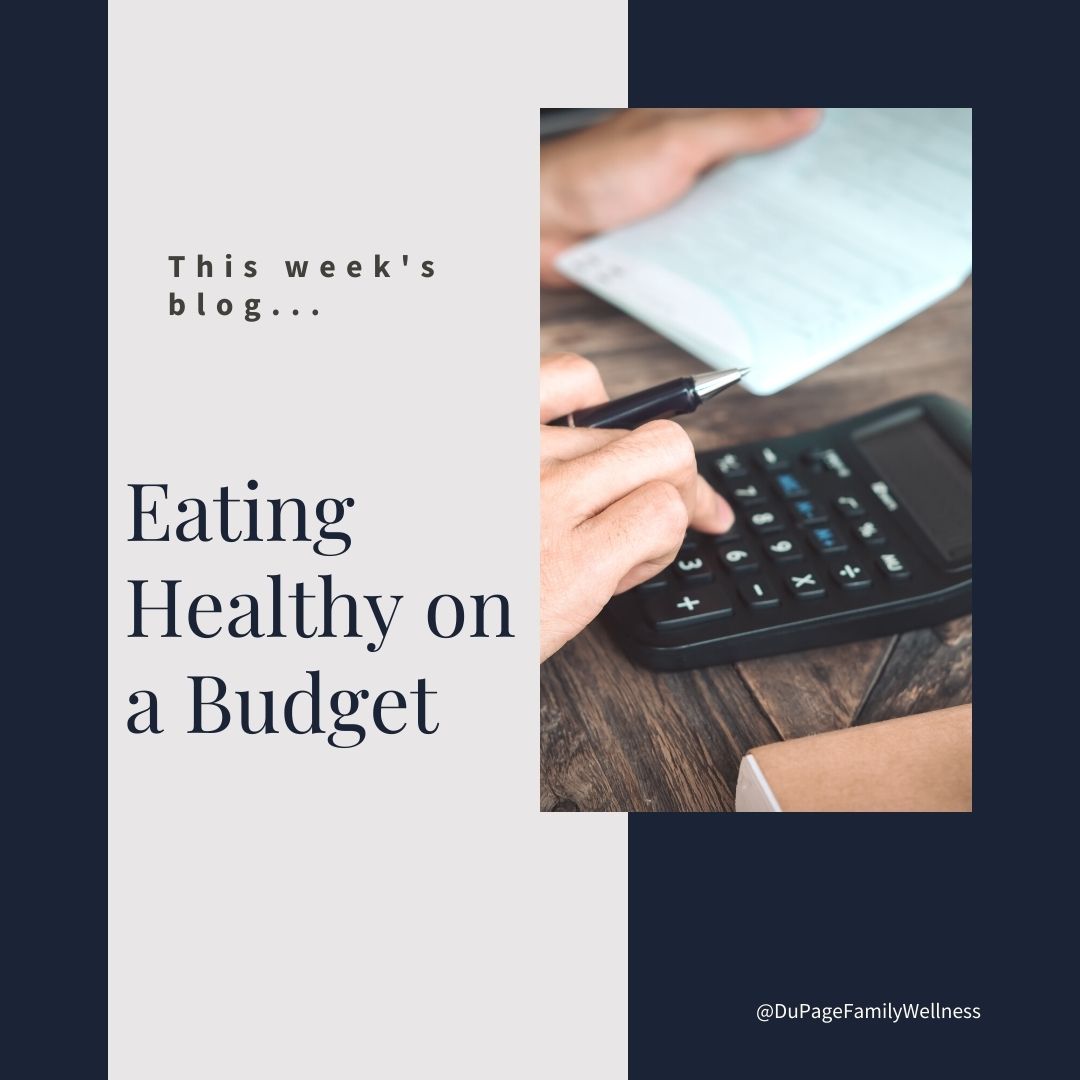 You may want to change your diet, but don’t feel like you can afford it. The cost of everything has gone up; isn’t healthy food even more expensive? Well, not necessarily.
You may want to change your diet, but don’t feel like you can afford it. The cost of everything has gone up; isn’t healthy food even more expensive? Well, not necessarily.
If you have the motivation to start a healthier lifestyle by eating nutrient-dense foods, you may be surprised to find out that it can be affordable. It may take a bit of extra work, but you do have options.
Here are some tips to get you started eating healthy while keeping your grocery bill within your means.
Focus on the Basics
Shop for ingredients that can be used for many types of dishes.
You don’t need all the fancy spices. Salt, fresh garlic, and onion powder are a good start to flavoring your food. If you enjoy ethnic foods, you can get seasoning appropriate for those dishes, but stay away from the expensive spices you’ll only use for one dish.
You will also need some healthy fats. Olive oil, coconut oil, and butter can be used in most dishes. Choose your favorite and use them in everything you make. (Note: Olive oil is intended to be used at low temperatures and is not intended to be used in cooking.)
Next, get some fruits and vegetables. Frozen vegetables are just as nutritious as fresh and can be used in many different dishes. Since they have a long shelf life there will be little food waste. Buying fruit in season and looking on the clearance rack will also keep the cost down.
You could stop there, but if you tolerate starches white potatoes, sweet potatoes, and other root vegetables are inexpensive options.
Buy in Bulk
Buying in bulk can help to keep the cost down. If you are able to invest in a quarter, half, or whole animal directly from a local farmer you can often save a lot of money.
While this is cheaper than buying quality meat in the store, it does take money upfront which can be a concern for many. If this is an issue for you, ask your family or friends to go in on it with you.
Dividing the meat with others requires less money upfront. It will also make it easier to store the meat in your freezer and lower food waste.
Choose Your Battles
It may not be possible for you to buy organic, grass-fed, free-range, local food. So, pick the most important things to focus on.
Some produce is important to buy organic, if possible, while it’s not as important for other varieties. Check out the Environmental Working Group’s Dirty Dozen and Clean Fifteen lists to see where to focus.
Animal products are the same way. You don’t have to feel bad for buying non-grass-fed, non-organic lamb, eggs, and some cheeses. Even canned fish (salmon, skipjack tuna, sardines, and herring) are nutrient-dense foods that aren’t that expensive.
Get the highest quality you can afford, but it’s better to eat non-organic meat and eggs than processed foods. It’s better to eat a conventionally grown kiwi than it is to grab a bag of chips.
If you want to eat healthier, you don’t have to be perfect! Do want you can and know that you are doing your best. I’d love to hear what changes you are making and if you have any tips for saving money along the way.
Dr. Jamie
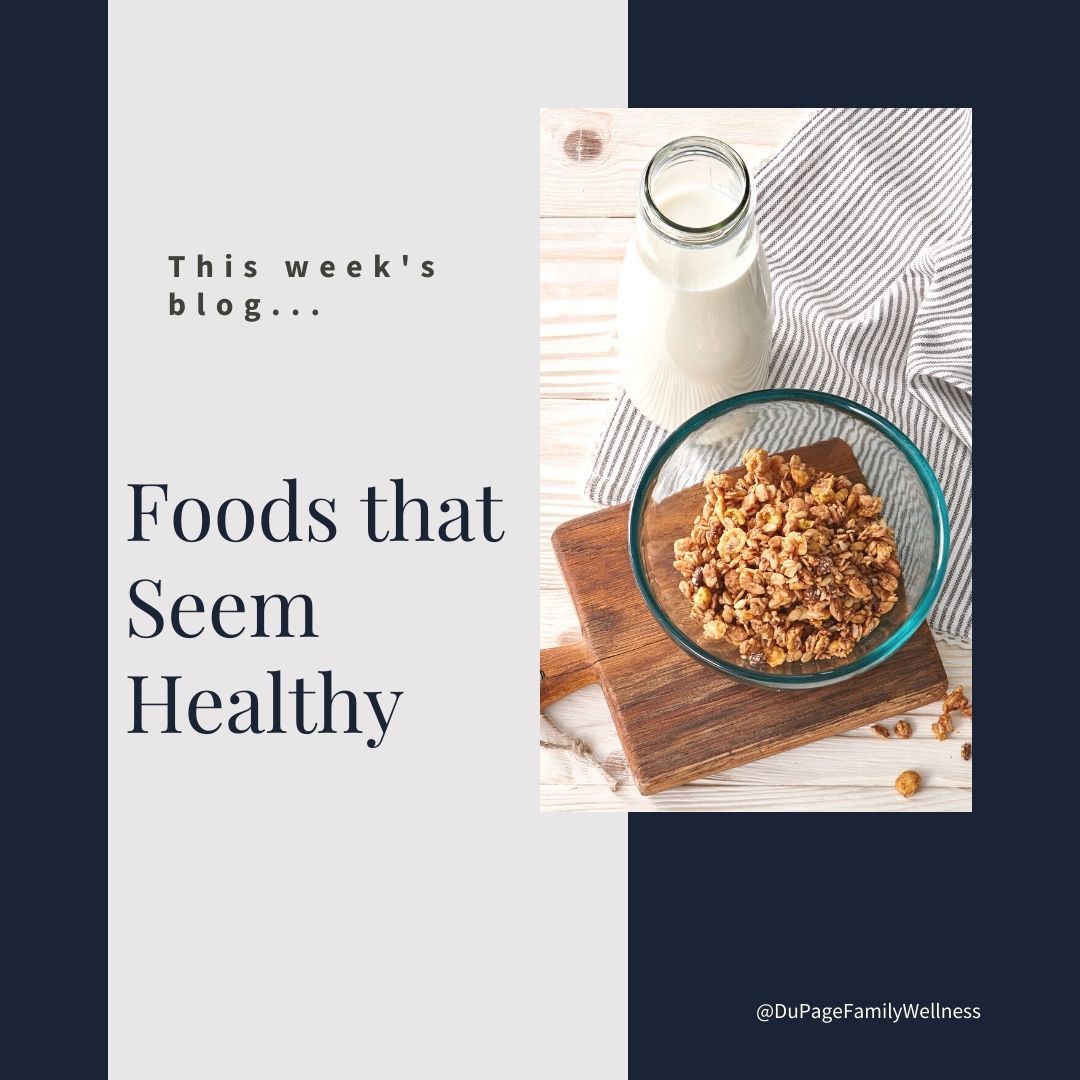 We’ve all heard it, eat fewer calories than you burn and you will lose weight. It sounds so reasonable, but is it really that straightforward? The short answer, is it’s NOT.
We’ve all heard it, eat fewer calories than you burn and you will lose weight. It sounds so reasonable, but is it really that straightforward? The short answer, is it’s NOT.
Trust me, I used to be a calorie counter too. I figured if I ate fewer calories than I burned, I’d lose weight! When it didn’t work, I was confused. My research led me to understand that it is much more complex than the calorie in calorie out myth.
Food is MUCH more than just a source of calories; it is information for our bodies! And our bodies are not simple scales, balancing calories in and calories out. Our bodies have many complex chemical systems that break down the food we eat and process each ingredient in a different way!
Armed with this information, I thought about the foods I used to buy because I thought they were healthy. Keep reading to find out what these foods are along with the reasons that I no longer buy them.
Food Marketing is Tricky
An important point to keep in mind is that food marketers are after their best interest, not yours. The truth is that their main concern is what helps their bottom line.
- Making the food as cheaply as possible.
- Making the food's shelf life as long as possible.
- Making the food addictive so we want to keep eating it and buying it.
Their goals are definitely different than mine. I don’t want the cheapest ingredients in my body. I actually want my food to go bad because if it will last on a shelf forever it must be full of chemicals to keep the bacteria away. And I certainly don’t want to be addicted to my food.
To make matters worse food companies throw in buzzwords like “gluten-free,” “low fat,” “heart healthy,'' and “all natural” to confuse us. This type of marketing makes us believe the foods are good for us even when they’re not.
Boca Burgers and Veggie Burgers
For years I believed that eating red meat was bad for me, so I turned to meat alternatives. The label showed that soy patties have less fat and less cholesterol than a beef burger, and I was sold.
But we don’t have to be afraid of fat! Research has found that cholesterol in the diet does not play a strong role in determining the body’s cholesterol levels. In fact, we need good healthy fats to survive.
We should, however, be cautious with any food product that has a long ingredient list, especially if it contains words you don’t recognize. A good rule of thumb is: "If you wouldn’t want to eat the ingredients plain, then why eat them all combined in a food-like product?”
A good grass-fed burger that comes from a healthy cow that was able to walk around and eat its natural diet while it was alive has only one ingredient: beef! It has important nutrients, and I’d choose that over meat alternatives any day!
Fruit flavored yogurt
I used to eat fruit-flavored yogurt every morning. I loved that it was only 80 calories. But now I look at it and see that it contains “natural and artificial flavors.” I mean, what does that even mean?
I don’t consume much dairy now, but when I do eat yogurt it will be PLAIN FULL FAT yogurt. The less processed the better.
When the milk came out of the cow it had fat in it. Wouldn’t you prefer to keep it that way? The fat is actually HELPFUL in keeping your blood sugar stable for longer periods of time without spiking. And if you want fruit-flavored yogurt, you can add your own real berries!
Read more ...
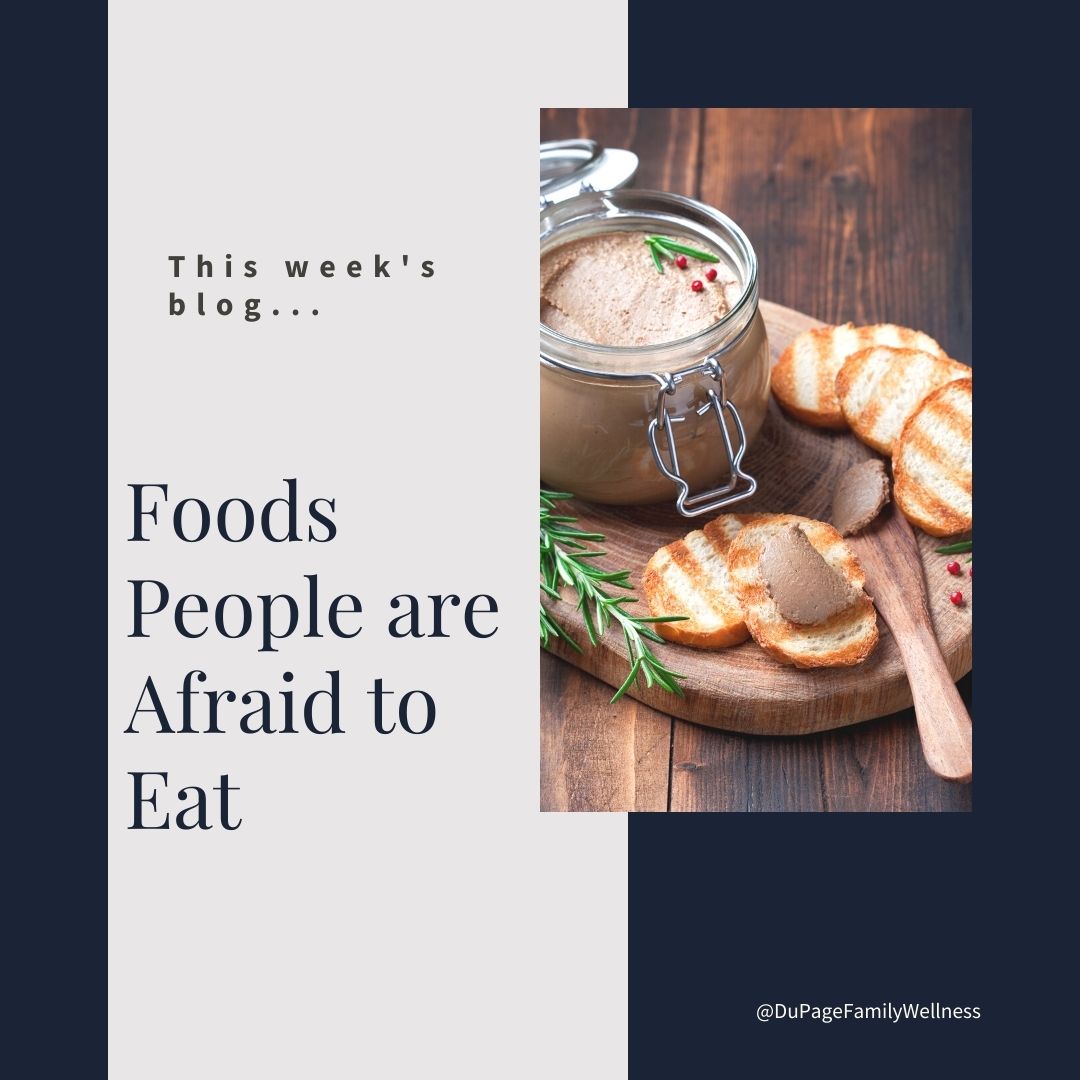 It’s not only kids that avoid certain foods. Many adults who don’t consider themselves picky eaters avoid certain foods as well.
It’s not only kids that avoid certain foods. Many adults who don’t consider themselves picky eaters avoid certain foods as well.
Some people are afraid to eat specific foods because they have been told they are unhealthy, while others think they will taste bad.
Let’s look at 5 foods that many people avoid and tear down the myths that surround them. You might be surprised that the following foods have many health benefits and actually taste good!
Red Meat
Many people think that red meat is unhealthy, raising your cholesterol and setting you up for heart disease. However current research shows this is not true.
According to Dr. Chris Kresser, “despite what you’ve heard, red meat is an extremely healthy and nutrient-dense addition to your plate. It’s a great source of vitamin B12, Vitamin d, Iron, Zinc, Magnesium, Copper, Cobalt, and more.”
For more information about the benefits of red meat check out his article Red Meat: The Food They Love to Hate or download his eBook The Truth About Red Meat.
Eggs
Eggs have gotten a bad reputation over the years. It makes me sad that so many people are afraid of cholesterol, because cholesterol in our diet is not the enemy!
Studies have shown that eating eggs does not affect blood cholesterol in 75% of the population and only modestly increases LDL and HDL cholesterol in the rest of the population. These studies have found that eating eggs does not increase the risk of heart disease.
To learn more about why your body actually needs cholesterol check out my blog post Bacon & Eggs: Healthy or Not.
Read more ...
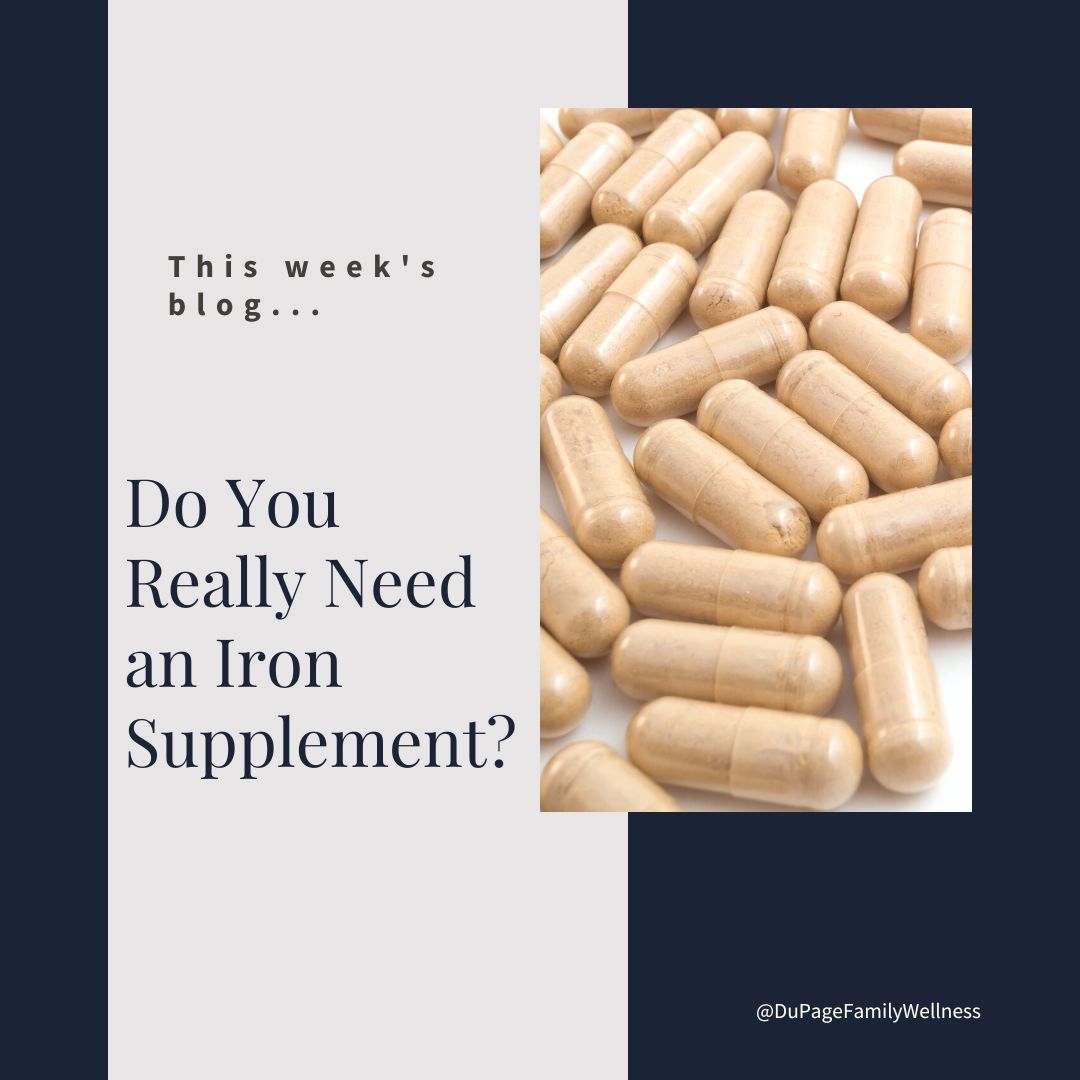
Do you feel tired all the time? If so, you may wonder if you are iron deficient. You may try to take iron supplements or go to the doctor for testing.
If you go to the doctor, they will probably use a blood test to check the ferritin levels in your body. Ferritin, a protein in iron, is often thought to be the best way to check for low iron or anemia.
But what if the iron is already in your cells, not in your blood? Are you really lacking iron in your body, or is the iron simply not working properly?
Let’s look at the purpose of iron and how it works in the body, so we can use this knowledge to make wise decisions about our iron consumption.
Iron’s Purpose & Movement in the Body
We cannot survive without oxygen circulating through our bodies. Iron's one responsibility is to carry oxygen in the body. Think of it as a waiter with a silver tray gracefully carrying the oxygen where it needs to go throughout the body.
The oxygen is carried on the iron through the body on red blood cells. You can think of the red blood cells as a moving sidewalk as you see in airports.
Once a red blood cell is not working anymore, the iron is able to keep circulating through the body by jumping on another red blood cell.
So, the waiters (iron) are riding on moving sidewalks (red blood cells) while carrying a tray (with oxygen on it). When one moving sidewalk (red blood cell) stops working, the waiter (iron) steps onto another moving sidewalk (red blood cell).
For this reason, we can say that the body has its own recycling system in regard to iron! The iron doesn’t stop working when the red blood cell does. It is just carried through the body on another red blood cell.
Read more ...
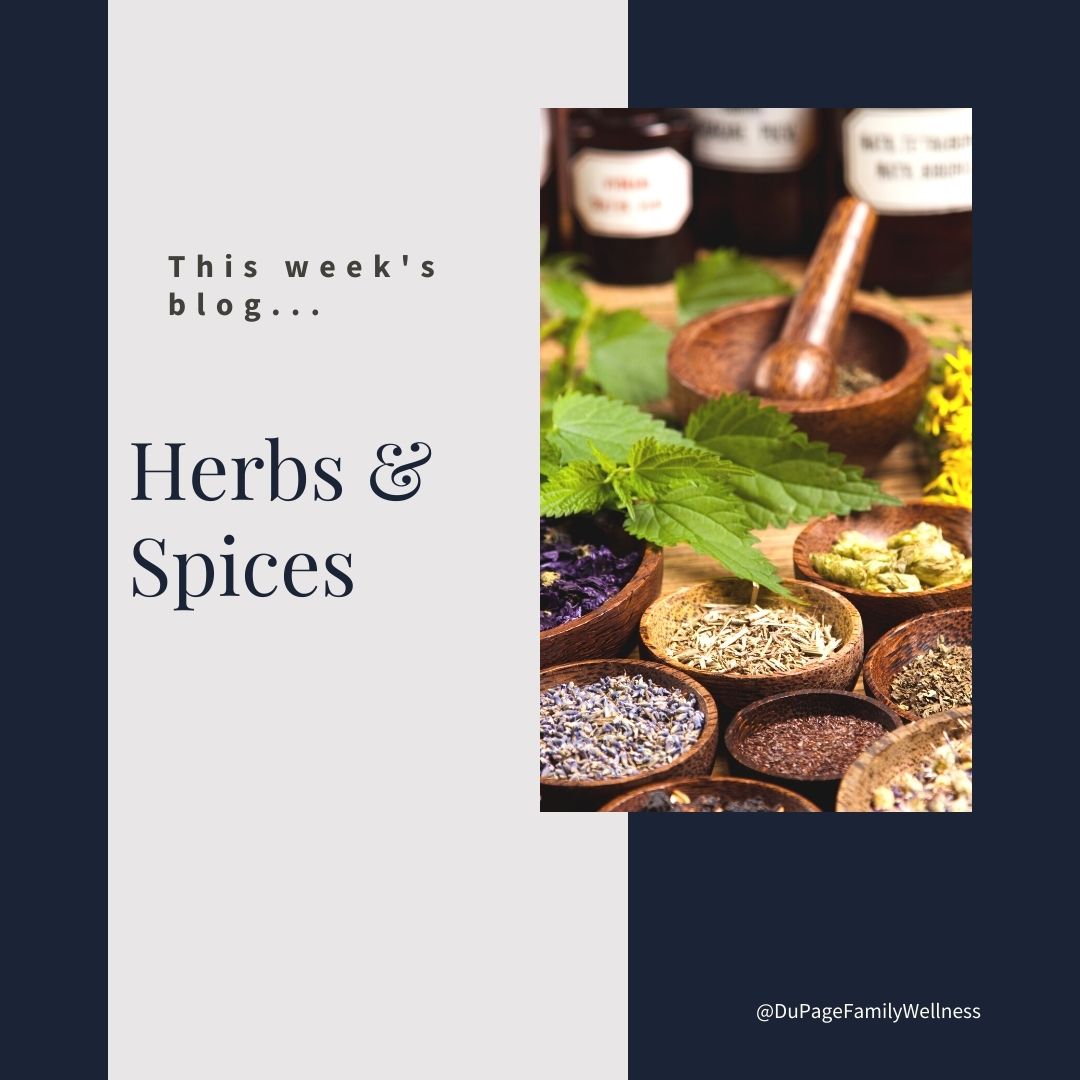 Are you someone who loves natural healing over pharmaceuticals? There are so many options when it comes to natural health. One effective method of healing is through spices and herbs. They have been believed to preserve health for thousands of years!
Are you someone who loves natural healing over pharmaceuticals? There are so many options when it comes to natural health. One effective method of healing is through spices and herbs. They have been believed to preserve health for thousands of years!
Egypt started having schools for herbalists in 300 B.C. According to The Book of Spices, around 2600 to 2100 BC “onions and garlic were fed to the one hundred thousand laborers who toiled in the construction of the Great Pyramid of Cheops, as medicinal herbs to preserve their health.”
Recent studies have supported what the Egyptians long knew. There are many health benefits of herbs and spices. But with so many options it’s hard to know which ones will work for you.
Let's explore herbs and spices to see which ones could help you on your journey to health!
Healing Properties of Specific Spices
There are a variety of herbs and spices, each with their own special healing properties. If you know which ones apply to your particular situations, they can be very effective.
- Cinnamon is a delicious spice that has many health benefits. In a study comparing 26 spices, it was found to have the highest level of antioxidants. It has many anti-inflammatory properties and is known to help with blood sugar regulation. It may help individuals with Alzheimer's, Parkinson's, HIV, and cancer.
- Sage is another spice with anti-inflammatory properties. It’s been shown to decrease cholesterol and blood sugar in diabetic patients. It may improve memory in both Alzheimer's patients and younger individuals. It was found to decrease the frequency and intensity of hot flashes in menopausal women.
- Peppermint is often effective in reducing pain from headaches, nausea, colic, allergies, as well as muscle and joint pain. It’s been found to have antimicrobial, antiviral, and antioxidant properties. A study published in the Avicenna Journal of Phytomedicine found that it even increased sports performance. It has also been found to decrease IBS.
- Turmeric/Curcumin is well known for its anti-inflammatory properties. It is also effective in reducing symptoms of depression, helping the body in detoxification, combating obesity, and alleviating symptoms of Inflammatory Bowel Disease. It may help treat or prevent some cancers, slow or prevent blood clots, as well as assist in regulating blood sugar. The benefits of this spice are almost too many to list. It may be beneficial to combine this spice with black pepper to help the body absorb it.
Read more ...
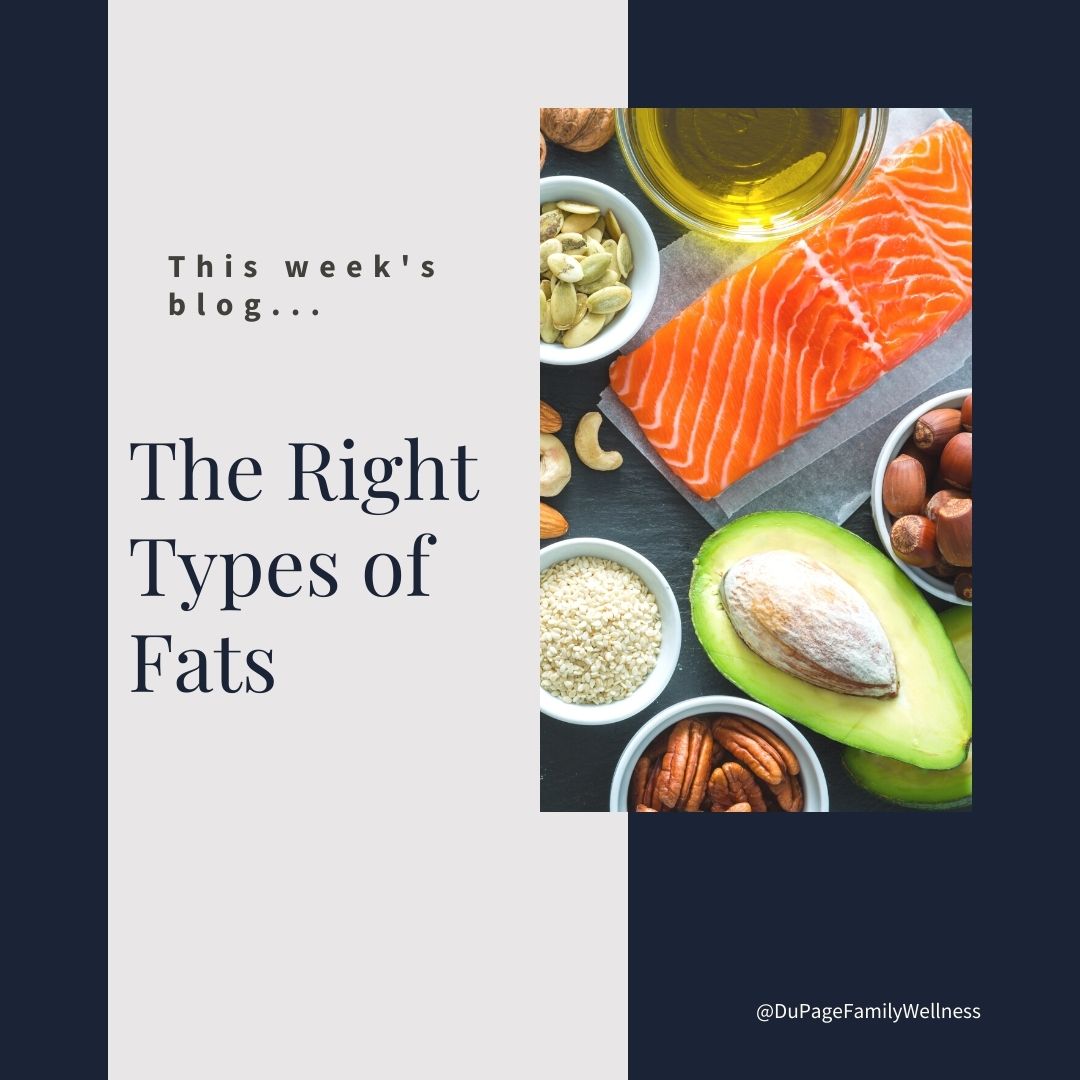 Are you afraid to incorporate fats into your diet? Do you believe that eating fat will make you fat? If so, you may eat a lot of chicken breast, steamed veggies, low-fat milk, low-fat yogurt, and salads with fat-free dressing.
Are you afraid to incorporate fats into your diet? Do you believe that eating fat will make you fat? If so, you may eat a lot of chicken breast, steamed veggies, low-fat milk, low-fat yogurt, and salads with fat-free dressing.
You may believe this due to the messages in the media. You’ve likely been taught that eating fat is bad for you, but this is simply not true! Regardless of what the media says, the research is clear.
Eating the right fats will make a HUGE impact on your body, but eating the RIGHT fats is the key!
Let’s explore what fats to eat and which to avoid.
We need HEALTHY fat
There are several essential fatty acids that your body cannot make on its own. If you don’t consume fat it may lead to inflammation, fatigue, poor memory function, heart issues, depression, dry skin, and other unpleasant symptoms.
Every cell in your body contains fat. One reason your body needs fat is to produce hormones. This is especially important for fertility, pregnant and postpartum patients, as well as those with Polycystic Ovary Syndrome (PCOS)!
Healthy fats help us feel full, maintain energy, stabilize blood sugar, and help with insulin resistance. Eating healthy fat (like olive oil) with your salad or veggies will also allow your body to absorb more of the nutrients from the vegetables.
Types of Fats
There is a BIG difference between good, natural, unprocessed, unrefined sources of fat and highly processed, refined fats.
Healthy fats should be incorporated into your diet every day. In some cases, it can be beneficial for these fats to make up well over HALF of the calories that a person consumes.
The processed and refined fats on the other hand, are considered “junk calories”. These unhealthy fats can be oxidized or rancid and are unrecognizable to our bodies. They actually contribute to inflammation which we know leads to all sorts of health problems.
Healthy Fats
These foods contain GOOD Fats. Enjoy eating these frequently without guilt!
- Avocados
- Olives
- Ghee
- Butter (I especially love Kerrygold)
- Plain yogurt (Full fat)
- Avocado oil
- Coconut oil
- Olive oil
- Nuts
- Fish (salmon, herring, anchovies, and sardines)
- Grass fed beef
- Dark meat from free range poultry
- Fats from animals (lard, beef tallow, duck fat, etc.)
- Eggs (especially from pastured chickens)
*It is important that the meat you eat comes from animals that were healthy and got to eat their natural diets while they were alive.
Unhealthy Fats
Unhealthy fats often hide in processed foods such as chips, crackers, and baked goods. Some of these fats are too high in omega 6 fatty acids, and they are all highly processed. An especially unhealthy type of fat is trans fat which we will talk about later.
Some examples of unhealthy fats include:
- Safflower oil
- Sunflower oil
- Soybean oil
- Canola oil
- Corn oil
- Vegetable oil
- Margarine
- Crisco
- Peanut oil
- Wheatgerm oil
- Cottonseed oil
- Grapeseed oil
- Rice Bran oil
- Anything hydrogenated or partially hydrogenated
As mentioned above, the worst type of fat is probably trans fats. These are man-made fats that are no longer classified at GRAS (Generally Recognized as Safe) by the FDA. When people eat trans fatty acids, various amounts of it are deposited in the body's tissues and impact the way the body functions.
For this reason, trans fats should be completely eliminated from the diet. They are commonly found in fried foods, doughnuts, baked goods, pie crusts, biscuits, frozen pizza, cookies, crackers, margarine, and other “butter-like” spreads.
Tips to Handle Fats
If you are someone who feels guilty about eating fats, consider adding some healthy fats to your diet. Enjoy butter, avocado, olive oil, and more fats from the “healthy” list above!
If you still have some of the “unhealthy” fats listed, you may want to consider switching these out with some of the healthier fats. Little changes, done consistently, can set you on a path to better health! To do this is is great to:
- Eat mostly whole and unprocessed foods (plants, animals, etc.).
- Limit meals at restaurants, as they typically use unhealthy oils. (If you do have to eat out often, choose a salad with olive oil and vinegar dressing.)
- Read labels carefully (many healthy looking oils are mixed with “blends” of other oils).
- Make your own salad dressing. It’s easy to do! (If you need some ideas, just ask. I’ll send you some recipes that I love.)
- Buy oils in a dark glass bottle to keep them from oxidizing. (When oil is stored in clear plastic bottles it will easily oxidize and become rancid.)
Still not convinced? Check out this article which explains why healthy fats do NOT cause high cholesterol, high blood pressure, or other related health conditions.
Let me know if you have questions. If you are interested in learning more about nutrition, I’d be happy to send you information about “Seven Weeks of Real Food.”
Dr. Jamie
Mark Hyman, MD. Eat Fat, Get Thin. Little, Brown and Company, 2016.
Mary Enig, PhD. Know Your Fats. Bethesda Press, 2013.
 You may want to change your diet, but don’t feel like you can afford it. The cost of everything has gone up; isn’t healthy food even more expensive? Well, not necessarily.
You may want to change your diet, but don’t feel like you can afford it. The cost of everything has gone up; isn’t healthy food even more expensive? Well, not necessarily.

 We’ve all heard it, eat fewer calories than you burn and you will lose weight. It sounds so reasonable, but is it really that straightforward? The short answer, is it’s NOT.
We’ve all heard it, eat fewer calories than you burn and you will lose weight. It sounds so reasonable, but is it really that straightforward? The short answer, is it’s NOT.  It’s not only kids that avoid certain foods. Many adults who don’t consider themselves picky eaters avoid certain foods as well.
It’s not only kids that avoid certain foods. Many adults who don’t consider themselves picky eaters avoid certain foods as well.
 Are you someone who loves natural healing over pharmaceuticals? There are so many options when it comes to natural health. One effective method of healing is through spices and herbs. They have been believed to preserve health for thousands of years!
Are you someone who loves natural healing over pharmaceuticals? There are so many options when it comes to natural health. One effective method of healing is through spices and herbs. They have been believed to preserve health for thousands of years!  Are you afraid to incorporate fats into your diet? Do you believe that eating fat will make you fat? If so, you may eat a lot of chicken breast, steamed veggies, low-fat milk, low-fat yogurt, and salads with fat-free dressing.
Are you afraid to incorporate fats into your diet? Do you believe that eating fat will make you fat? If so, you may eat a lot of chicken breast, steamed veggies, low-fat milk, low-fat yogurt, and salads with fat-free dressing. 